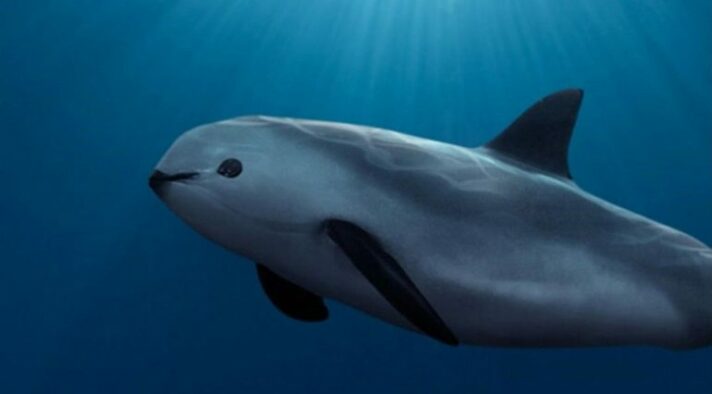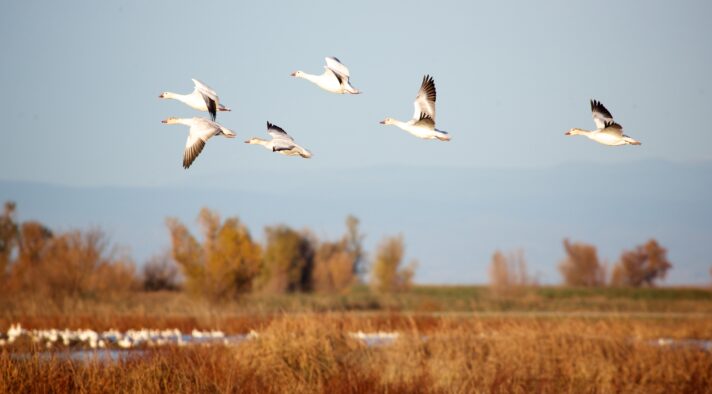Guest article by Mr. Jean Lemire, Envoy for Climate Change, Nordic and Arctic Issues, Government of Quebec.

When we speak of biodiversity, the Aichi Biodiversity Targets (ABT), established in 2010 under the United Nations Convention on Biological Diversity (CBD), represent the essential roadmap for biodiversity conservation. Sadly, it has now been widely demonstrated that globally, not only is the progress limited in achieving the ABT, but that the majority of them will not be met by 2020. The difficulty to mainstream biodiversity into all sectors is one of the main obstacles to the implementation of the CBD. Loss of biodiversity is not only an environmental challenge but also a developmental, economic, security, social and moral issue. This holistic approach is one of the main goals of the new global biodiversity framework (GBF) for the post-2020 era that are currently negotiated. This process is, in fact, an opportunity to raise the global ambition in biodiversity conservation and its sustainable use. Quebec intends not only to be an active voice throughout the negotiations of the GBF, but also a model of the contribution of subnational governments at the international scene.
The negotiations of the new global biodiversity framework were launched at the 14th Conference of the Parties (COP) of the CBD held in Sharm El-Sheikh, Egypt, in November 2019. This process will culminate by the adoption of the new GBF at COP-15 in Kunming, China, in October 2020. During these two years, Parties have agreed on a participatory and inclusive negotiations process, led by an Open-Ended Working Group (OEWG) co-chaired by representatives from Canada and Uganda. The OEWG will lead to the development and draft of the next framework. Composed of all representatives of Parties to the CBD, the group also included other majors groups such as the Advisory Committee of Subnational Governments for Biodiversity (AC SNG), which is coordinated by Quebec and Regions4. Indeed, the next GBF will require a “whole of society approach”, and the Government of Quebec is actively working to bring the voice of subnational governments into the OEWG.
Last August, I was in Nairobi, Kenya to represent the Advisory Committee at the first meeting of the OEWG. The meeting officially launched the start of the development of the scope and structure of the next GBF. I can already give some observations on the main trends we see emerging. For example, there is a strong need for a simple and concrete plan, linked with SMART targets (Specific, Measurable Attainable, Relevant and Timely), and a comprehensive communication campaign to help society and political authorities to be better aware and involve in the conservation of Nature. Also, if we talk about protected areas and other measures of conservation, there are some emerging discussions suggesting that the target could increase from 17% to 30% by 2030. This means that definitions will be reviewed and developed. What has been done in the North of Quebec is an example worth being put forward and that is already being looked at[1]. Another strong trend is the will to closely link the new biodiversity framework with, amongst others, the 2030 Agenda for Sustainable Development, the Paris Agreement relating to climate change and other relevant multilateral environment agreements.
Finally, these negotiations are intended to be inclusive, and the new plan should be drafted to include the role and contribution of business, industry, academia, indigenous and local communities, cities and subnational governments. This range of stakeholders is viewed as fundamental to the development and implementation of the framework. Subnational government and the importance of cities was even formally included in the conclusions of the OEWG negotiations. Through the Advisory Committee of Subnational Governments for Biodiversity, Quebec has created partnerships with other subnational networks and with local initiatives to reinforce the role subnational governments and cities have in the implementation of the Convention and to support a more effective implementation of the Strategic Plan at the subnational and local levels of governments. This need to move to another level and invite all players to the table was also most recently reminded with the IPCC and IPBES reports.
Furthermore, an IPCC Special Report on Artic ice was published in September 2019. It showed not only that Arctic ice is melting at an unheard of speed, but that Antarctica is also melting, something we were not sure about ten years ago. Damage to oceans and glaciers from climate change is outpacing the ability of governments to protect them and those changes have and will have, impacts on people and on human health – everywhere.
I’ve mentioned it before, biodiversity and climate are interconnected in many ways, and must be addressed together. On the one hand, biodiversity is strongly affected by climate change, with negative consequences for human well-being and the long-term stability of critical ecosystems. On the other hand, the conservation of biodiversity, through the ecosystem services it supports, makes an indispensable contribution to addressing climate change. Ecosystem-based approaches, or nature-based solutions, can contribute significantly to climate change adaptation of local population and human health by reducing the vulnerability of the ecosystems upon which they depend. Many direct and indirect drivers, such as changes in land and sea use and consumption of food and energy respectively, are the same for climate change and biodiversity loss. Thus, there are important synergies in addressing these issues together. It will also be essential to better mainstream biodiversity into the economic development, and better formulate environmental, social and economic arguments that promote funding mechanisms for Nature.
In
conclusion, 2020 will be a super-year for biodiversity, and I look forward to
the adoption of this ambitious New Deal for Nature. However, there are many
challenges ahead of us, but I am hopeful that we can succeed. After all, we
don’t have another choice that success, for the sake of our beautiful and
fragile ecosystem.
[1] https://plannord.gouv.qc.ca/fr/



